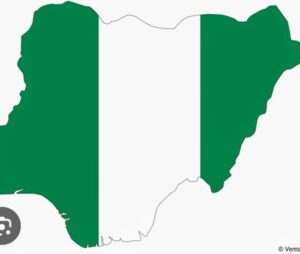

(Editorial).

Credit: Google.
By Dada Ahmed.
Nigeria’s economic situation has become increasingly challenging, with inflation causing a sharp rise in the cost of goods and services. From essential food items like rice and beans to transportation and healthcare, the cost of living has spiraled out of control, leaving many citizens struggling to make ends meet. This article examines the causes of inflation, its impact on Nigerians, and practical solutions to alleviate the crisis.
In October 2024, the Federal Government increased the minimum wage for workers from N30,000 to N70,000 to help mitigate economic challenges.
Although the policy has been well-received by workers, there are still significant obstacles to overcome in finding a lasting solution to rising inflation.
The average Nigerian is finding it harder to afford basic necessities. A bag of rice that cost N25,000 few years ago now sells for over N70,000 or more in some markets. Similarly, transportation fares, cooking gas prices, and healthcare costs have soared.
For many families, the rising cost of living has forced difficult choices. Some have had to cut back on meals, delay medical treatment, or withdraw children from school due to financial constraints. Inflation has turned everyday survival into an uphill battle.
Several factors are fueling the unrelenting rise in prices. First, the naira’s depreciation against foreign currencies has made imports more expensive, including machinery, food, and other essential goods. Second, the removal of fuel subsidies, while necessary for long-term economic stability, has drastically increased fuel prices, pushing up the cost of logistics and transportation.
In addition, insecurity in farming regions has disrupted agricultural production, leading to food shortages and higher prices. Global economic trends, such as rising oil prices and supply chain disruptions, have also exacerbated the problem, adding external pressures to Nigeria’s already fragile economy.
The effects of inflation are evident across all sectors of Nigerian society. Families have less purchasing power, with many forced to forgo essential items or healthcare. Poverty levels have risen, as more people fall below the poverty line due to the rising cost of basic needs.
Small businesses, often regarded as the backbone of the economy, are not spared. Entrepreneurs face higher production costs, reduced profit margins, and dwindling consumer spending. This economic strain has stifled growth and innovation, leaving many businesses struggling to stay afloat.
Addressing Nigeria’s inflation crisis requires collective effort from both the government and its citizens. For the government, a focus on enhancing agricultural production is crucial. Investments in modern farming techniques, subsidies for farmers, and improved security in rural areas can boost food supply and help stabilize prices.
More so,measures to strengthen the naira through diversified exports and more efficient foreign exchange policies are vital. The government can also consider short-term subsidies on critical goods like food and fuel to provide immediate relief to struggling households. Supporting local industries and encouraging the production of locally made goods will reduce reliance on expensive imports while creating jobs.
Citizens, on the other hand, can adopt smarter financial habits such as budgeting and saving. Prioritizing essential spending and supporting local products can reduce the strain on personal finances and help strengthen local industries.
Community-based initiatives like cooperative farming or communal markets can also provide affordable alternatives for goods and services.
Nigeria’s inflation crisis presents a complex but solvable challenge. While the burden on citizens is heavy, solutions exist that can ease the strain and lay the groundwork for a more stable economy. The government must take decisive action to address the root causes of inflation, while citizens must adapt and support local efforts to rebuild the economy.
The Federal government has initiated many economic policies and programmes, experts argue that recovery of the nation’s economic hardships will require collaboration and commitment.
Certainly, with the right strategies, Nigeria can overcome this period of economic hardship and ensure a better future for its people. The time to act is now.

